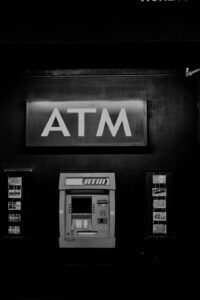The Impact of Cognitive Biases on Forex Trading: Overcoming Confirmation Bias and Anchoring
Forex trading is a highly complex and risky endeavor that requires a great deal of skill, discipline, and knowledge. Traders are constantly facing challenges and making decisions based on their analysis of various factors such as economic indicators, political events, and market trends. However, one aspect that often goes overlooked in the world of forex trading is the impact of cognitive biases on decision-making.
Cognitive biases are inherent flaws in human thinking that can lead to irrational judgments and decisions. These biases are a result of the brain’s natural tendency to simplify information processing and make quick judgments based on limited data. While these shortcuts can be helpful in everyday life, they can be detrimental in the world of forex trading where accurate and rational decision-making is crucial.
One of the most common cognitive biases that traders often fall victim to is confirmation bias. Confirmation bias is the tendency to seek out information that confirms one’s existing beliefs while ignoring or downplaying contradictory evidence. In the context of forex trading, this bias can lead traders to only consider information that supports their desired outcome while dismissing any information that suggests otherwise.
For example, let’s say a trader believes that the value of a particular currency pair will increase in the near future. They may actively seek out news articles, market analysis, and expert opinions that support their belief. On the other hand, they may completely ignore or dismiss any information that suggests the value of the currency pair may actually decrease.
Confirmation bias can be incredibly dangerous in forex trading as it can lead to overconfidence and a false sense of security. Traders who are overly influenced by confirmation bias may fail to conduct thorough research and analysis, leading to poor trading decisions and potential financial losses.
To overcome confirmation bias, forex traders need to develop a mindset of objectivity and critical thinking. It is important to approach each trade with an open mind and consider all available information, whether it supports or contradicts one’s initial beliefs. By actively seeking out opposing viewpoints and challenging one’s own assumptions, traders can make more informed and rational decisions.
Another cognitive bias that can impact forex trading is anchoring. Anchoring is the tendency to rely too heavily on the first piece of information encountered when making decisions. In the context of forex trading, this bias can lead traders to fixate on a specific price or value and make decisions based solely on that anchor, without considering other relevant factors.
For example, a trader may anchor their expectations for a specific currency pair based on its historical high or low price. They may then make decisions based on this anchor, even if there are other indicators or market trends suggesting a different outcome.
Anchoring can be particularly dangerous in forex trading as it can lead to missed opportunities and poor risk management. Traders who anchor their expectations too firmly may fail to adapt to changing market conditions and miss out on profitable trades. They may also hold onto losing positions for longer than necessary, hoping that the market will eventually return to their anchored price.
To overcome anchoring bias, forex traders need to develop a flexible and adaptable mindset. It is important to constantly reassess and reevaluate one’s trading decisions based on current market conditions and new information. Traders should avoid fixating on a single anchor and instead consider a range of possibilities and scenarios.
In conclusion, cognitive biases can have a significant impact on forex trading and can lead to poor decision-making and financial losses. Traders must be aware of biases such as confirmation bias and anchoring and actively work to overcome them. By developing a mindset of objectivity, critical thinking, and flexibility, forex traders can improve their decision-making abilities and increase their chances of success in the highly competitive world of forex trading.





